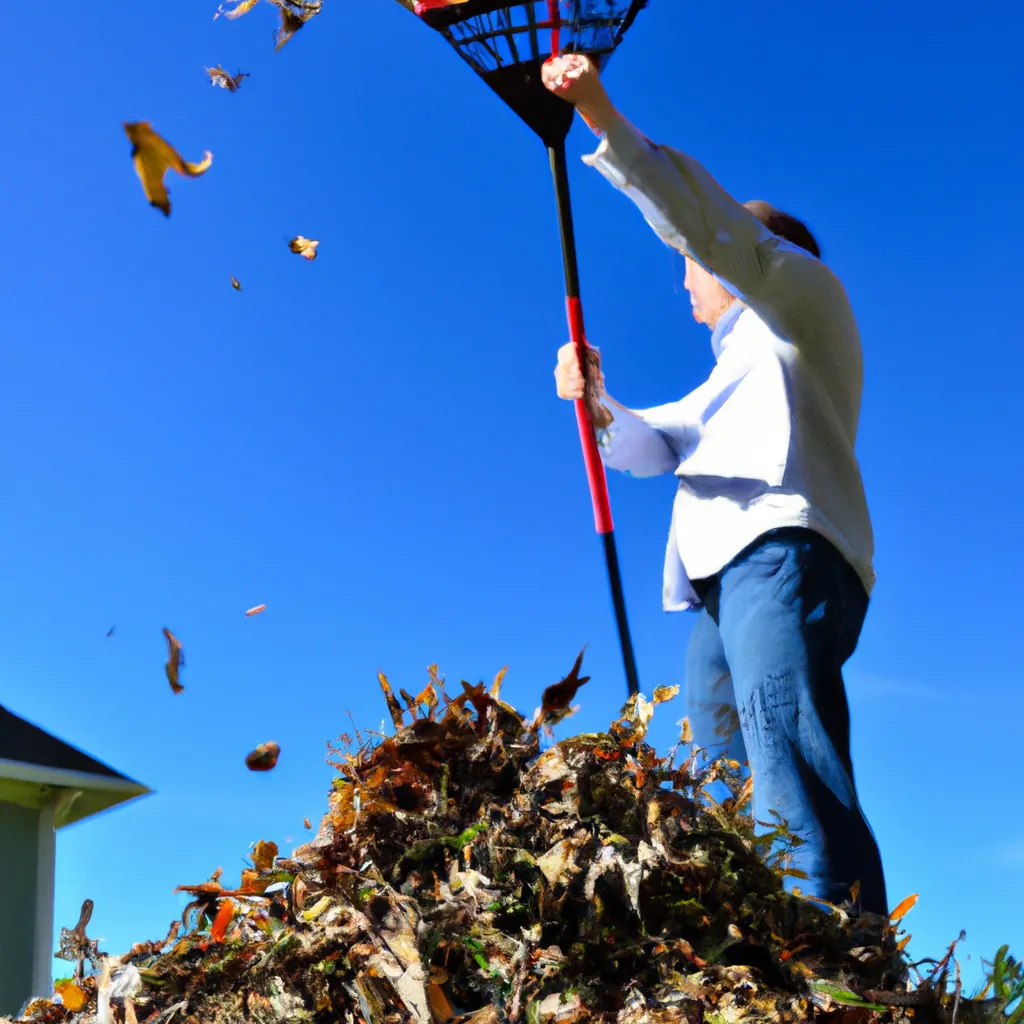Why Raking and Bagging Leaves is Important for Your Lawn and the Environment

As autumn arrives, leaves start falling, and homeowners often wonder whether they need to rake and bag them up. While leaves will eventually decompose on their own, it's essential to understand the science behind leaf degradation. Decaying leaves can attract pests, create nutrient imbalances, and make your yard look unsightly. Therefore, it's best to remove them to prevent potential problems and keep your lawn healthy and beautiful. So, grab your rake and get ready to enjoy some outdoor exercise!
The Science Behind Raking and Bagging Leaves
Leaves are an essential part of the natural ecosystem, and they do biodegrade on their own over time. However, there are several reasons why raking and bagging leaves is still necessary.
Firstly, leaving a thick layer of leaves on your lawn can prevent sunlight and oxygen from reaching the grass, leading to dead patches and an unhealthy lawn. Additionally, the decomposing leaves can attract pests and insects, such as ticks and mosquitoes, which can carry diseases.
Moreover, when leaves accumulate on sidewalks and roads, they can become slippery and hazardous, increasing the risk of falls and accidents. Raking and bagging leaves also helps to keep your neighborhood clean and tidy, preventing the buildup of debris and reducing the likelihood of clogged drains and flooding.
Finally, bagged leaves can be used for composting, which is an excellent way to enrich your soil and promote healthy plant growth. Composting also reduces the amount of waste that ends up in landfills, helping to protect the environment.
In conclusion, while leaves do biodegrade on their own, raking and bagging them up has several benefits for both your lawn and the environment. So, don't be afraid to grab that rake and get to work!
The Importance of Raking and Bagging Leaves
Leaves may seem harmless, but leaving them to pile up can have negative consequences. Raking and bagging leaves is necessary to maintain a healthy lawn, prevent pest infestations, and reduce the risk of accidents. Plus, you can use the bagged leaves for composting and help protect the environment. So, don't leaf your yard in a mess and start raking today!
The Science Behind Leaf Biodegradation
Leaves are a natural part of the environment and play a crucial role in the ecosystem. They provide shelter and food for a variety of organisms, and when they fall to the ground, they decompose and release nutrients back into the soil. However, when it comes to the question of whether or not we need to rake or bag up leaves, the answer is not straightforward.
While it is true that leaves will eventually biodegrade on their own, the process can take a long time. In the meantime, the layer of leaves on the ground can create a barrier that prevents water and air from reaching the soil. This can lead to soil erosion, which can have a negative impact on the environment.
In addition, when leaves are left to biodegrade on their own, they can create an ideal environment for pests and diseases to thrive. This can be especially problematic in areas where there are a lot of trees and shrubs, as the pests and diseases can quickly spread from plant to plant.
Finally, it is worth considering the aesthetic impact of leaving leaves on the ground. While some people may find the natural look of leaves on the ground to be appealing, others may find it unsightly. This can be particularly problematic in urban areas where there is a high concentration of people.
In conclusion, while it is true that leaves will eventually biodegrade on their own, there are several reasons why it may be necessary to rake or bag them up. By doing so, we can help prevent soil erosion, reduce the spread of pests and diseases, and maintain a clean and aesthetically pleasing environment.
The Case for Raking and Bagging Leaves
Leaves may be a natural part of the environment, but that doesn't mean we should leave them to biodegrade on their own. While it may seem like the eco-friendly option, there are several reasons why raking and bagging leaves is the better choice.
Firstly, when leaves are left on the ground, they can prevent water and air from reaching the soil. This can lead to soil erosion, which can have a negative impact on the environment. By raking and bagging leaves, we can help prevent soil erosion and keep the environment healthy.
Secondly, leaving leaves on the ground can create an ideal environment for pests and diseases to thrive. This can be especially problematic in areas with a lot of trees and shrubs, as the pests and diseases can quickly spread from plant to plant. By raking and bagging leaves, we can help reduce the spread of pests and diseases and protect our plants.
Finally, leaving leaves on the ground can be unsightly, especially in urban areas. By raking and bagging leaves, we can maintain a clean and aesthetically pleasing environment that everyone can enjoy.
So, while it may be tempting to leave leaves to biodegrade on their own, the case for raking and bagging them is clear. By doing so, we can help protect the environment, our plants, and our communities.